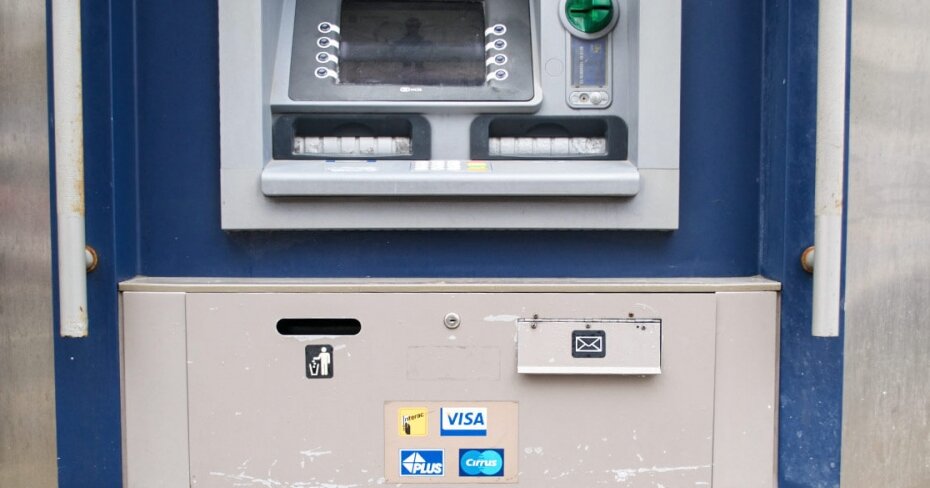How I eliminated financial fees from my life
By: Vin Heney on March 31, 2017
Fees suck.
Sure, banks play an important role in personal finance, but why the hell should we pay so much to these wildly profitable companies? Frankly, I find it insulting. And the worst part is that most of us don’t even realize alternatives exist. That’s the problem with Canada’s timid financial culture: we assume all of the confusing fees that come with the big banks are unavoidable.
So we get stuck in a cycle of depositing money and paying fees for almost everything we do — paying bills, using debit or credit cards, investing — then repeating month after month. The fees we incur are often hidden through automatic deductions, making avoiding them difficult.
We’re literally handing over what little money we have left after living costs to the big banks.
I, for one, am done with it.
Have I eliminated every financial fee from my life? No. But I’ve gotten rid of most of them. And I’m still able to pay bills online, invest my savings, move my money around, and earn credit card rewards.
Here’s how I kicked the fees:
Cheq yourself
If you’re anything like me, your day-to-day finances revolve around your chequing account. It’s where our cheques are deposited, where we pull money from, how we pay our bills, how we buy things, and how our investments are funded. It’s an important piece of the puzzle.
For years I had an RBC No Limit Banking account, paying a fee of $10.95 per month. The fee was lowered to $5 when I opened an RRSP and qualified for a multi-product rebate. But that’s still $60 per year. I wouldn’t pay $60 annually for a credit card, so why am I ponying up for a chequing account?
Well, I’m not anymore.
A few weeks ago, I strolled into my local branch and explained that I was done with this fee. After failing to convince me to keep a product I didn’t want (sound familiar?), the teller resorted to a seemingly benign explanation: “It’s less than $10 — that’s like buying one sandwich a month.” Nice try. You can’t fool a sandwich lover with a sandwich analogy — I’m well aware of the fact that big banks don’t care about me.
So I switched to the RBC Day to Day Banking account, which has a $4 monthly fee, but is free with the multi-product rebate. I’m now limited to 12 transactions per month, which puts a kink in my aforementioned chequing habits, but it’s forced me to use my credit card more often (rewards!) and pay with cash more often (reflection!).
I admit: I do miss being able to move my money around as often as I want. So I opened a Tangerine No Fee Daily Chequing account to explore a different option. OK fine, I opened it to take advantage of the 2.4% return on my savings account, but still, I have half a mind to do all of my chequing with them, despite how much of a pain it would be to switch everything over.
Free Credit
For me, this one was easy. I’ve always had a fundamental problem paying for a credit card just to earn better rewards. I suppose if I was George Clooney in Up In The Air then a premium card might make sense. In my case, however, I’ll take a no-fee credit card — like the RBC Rewards card I’ve had forever — and pass on the extra points. But that’s just me; paddle your own canoe.
Invest wisely
When it comes to avoiding fees on investments, on the other hand, it’s a little more tricky — and not always possible. That said, there are ways to be smart about the fees you’re paying. I used to have all of my investments with RBC, like a good loyal millennial. This included an RRSP, an RESP, and savings earmarked for a TFSA. Here’s how I changed it up.
RRSPs
I had two RBC mutual funds under my RRSP umbrella: Select Growth and Select Balanced, both with management expense ratios (MERs) — a.k.a. fees — of around 2%. As far as mutual fund fees go, these are pretty average, but considering the lack of advice and average returns I was getting, I decided to switch to an investment brokerage that charged similar fees but had a long history of strong returns and trusted relationships with my family: Investment Planning Counsel (IPC).
One of the main things I like about IPC is that they aren’t sales-y. I don’t have all of my investments with them — nor do I plan to — and at no point did they push me to go all in. What’s even more cool? They included all of my financial assets when helping me to build a plan — something I could never imagine a big bank doing. Case in point: what did RBC do when I told them I was moving my investments? They scoffed and told me I was making a huge mistake.
Breaking up with my bank after 30 years wasn’t easy, but that’s no way to treat a client.
RESPs
I had my son’s RESPs in RBC’s Target 2030 Education mutual fund. The fees here were also around 2%. I moved these over to IPC for the same reasons as above: similar fees, a better historical rate of return, and infinitely better customer service.
TFSAs
I took the savings I had earmarked for TFSAs and split it three ways: one portion went to a series of balanced mutual funds with IPC (with fees averaging less than 2%), one portion went to a Tangerine savings account with a market-beating return (1.9 - 2.4%), and one portion went to testing the robo-advisor waters with ETFs through Wealthsimple, at a 0.5% fee. I’ve also started some limited, TFSA-sheltered stock trading in a self-directed Questrade account, which charges no management fees, but does charge a commission of 1¢ per share (with a minimum of $4.95 per trade).
Phase out the fees
I know not everyone loves mutual funds, and there are probably more effective ways to avoid fees than what I’ve laid out — self-directed ETFs, to name one — but when it comes to finances, you have to know yourself. For instance, I have no interest in managing my own investments, so I’m OK paying minimal fees for someone else to do it, especially if it means personalized support and solid returns. Again, as with most financial solutions, there’s no single way to avoid fees — you have to do your homework and find a solution — or, as in my case, a series of solutions — that’s right for you.
Whatever you do, just make sure you’re not handing over any more of your hard-earned money to the banks than you absolutely have to.
You need it — they don’t.


